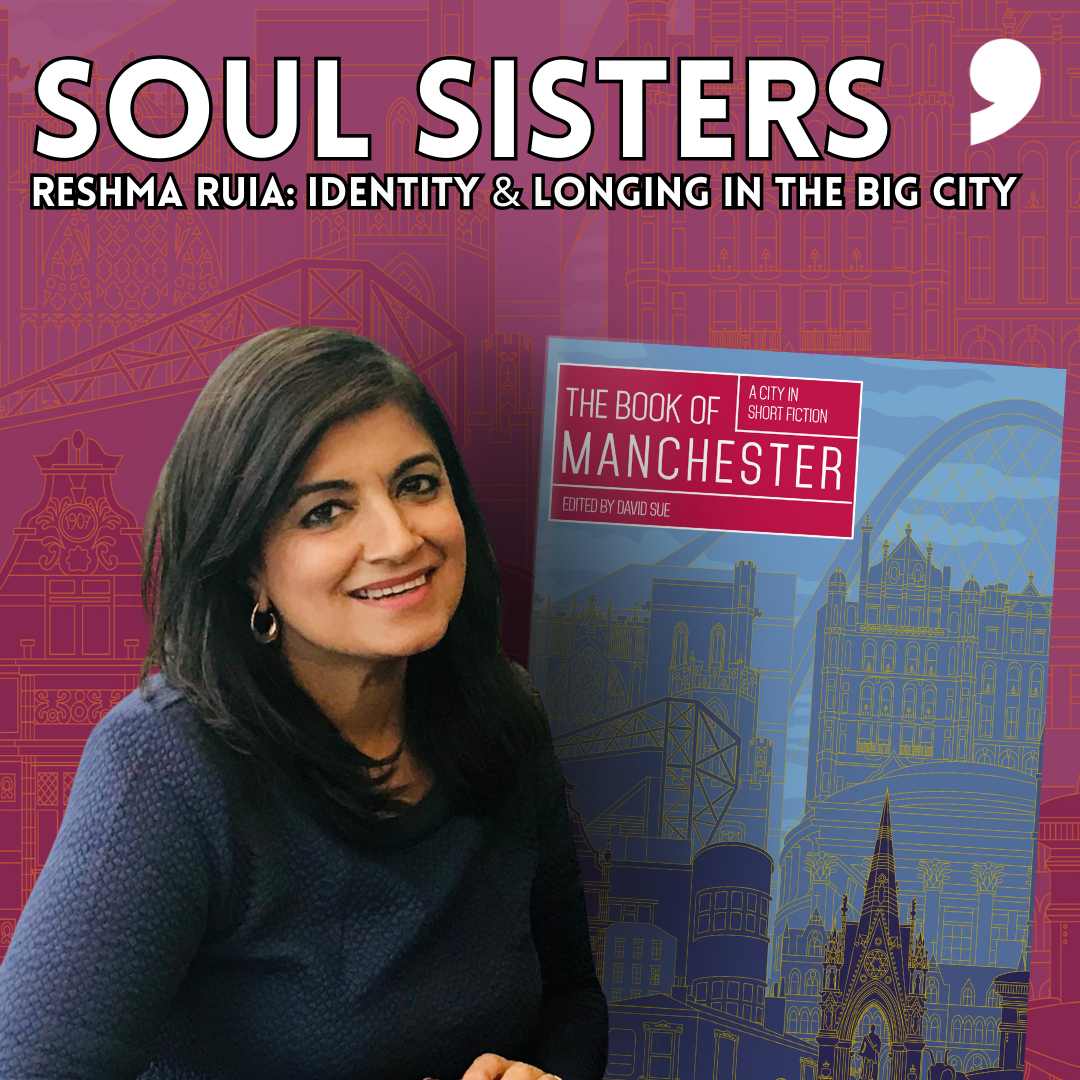Soul Sisters: Reshma Ruia Author Blog
The Book of Manchester contributing author Reshma Ruia talks about the inspirations behind her story ‘Soul Sisters.’ From the loneliness and ‘cold cruelty’ of the gentrified ‘Manctopia,’ to one's quest for identity and connection in cities that leave us smaller as they grow.
Some years back I went to see a celebrated author’s book launch at the Central Library in Manchester. The queue for the book signing was long but people were mostly good natured and patient. I noticed a woman in the queue who was carrying a shopping tote filled with books. She kept sighing loudly, mopping her forehead and looking at her watch and then unexpectedly she burst into tears before storming off. This is how this story was born.
'Soul Sisters' is about the loneliness and indifference of big cities and the yearning to be loved. At forty-two, Suman, the central protagonist is still surprised by the ‘careless cruelty’ she sees around her and her loneliness – as it seeks an anchor in a rapidly changing city is devastatingly ordinary and yet heart-breaking. Pining for love, she attempts to reinvent herself and realizes only too late that she is destined to remain who she is. The story highlights the chasm between who we are and who we want to be.
Manchester has a distinct identity in this story. An identity that is fluid, dynamic and constantly shape-shifting. Suman has a complex relationship with a city that has shrugged off its grey, industrial, Dickensian past to remerge as a metropolis crowded with shiny skyscrapers, organic vegan delis and co-working spaces. At one point, wandering through the city, she says, “Gone were the empty warehouses with gaping broken windows and weed-infested footpaths that led to terraced houses and boarded-up shops. Lewis’s had become Primark. There were slick department stores now and restaurants selling sushi and footballers wearing logos who purred along Princess Parkway in Lamborghinis and Ferraris. Sometimes she felt the city had grown taller and left her smaller.” And yet, in this brash, pugnacious city, there still remain pockets of warmth and kindness as seen in the friendship between Suman and the librarian at Withington library.
When I moved to Manchester from Rome some thirty years back, I encountered a city that had a sullen, slightly apologetic feel about it, as though it was questioning its standing in the world. There was the football and the music scene of course, but the songs were filled with rage and a fatalistic kind of grim humour. The IRA Bombing of 1996 changed everything - the city rose like a phoenix and the centre saw a conversion of Victorian warehouses into yuppified apartment blocks, and glitzy new restaurants. Manchester hasn’t looked back since. It’s appetite for renewal continues unabated and yet, like Suman, its core remains the same, a defiant identity made up of rain, chutzpah and compassion in equal measure.
Manchester has long been a beacon of hope for people in search of new beginnings. The city is a melting pot of different communities: Asian, Jewish, Caribbean, Eastern European... These diaspora communities have made Manchester their home and the story is in a sense about their struggles, aspirations and dreams. The city has had its share of economic decline and social upheaval, Suman, a second generation Asian immigrant remembers her childhood growing up in Burnage when “there were the strikes that filled the TV news bulletin night after night and gangs of youth with shaved heads who barged into her father’s corner shop, demanding cigarettes and booze.” But what she chooses to celebrate most “were summer days playing tag in the school playground and the 99 ice cream cones she saved up her pocket money to buy. “
At the heart of the story lies the question of identity, not the superficial identity based on colour or race, but a deeper quest relating to who we are, and why we become what we become. Identity of course is never static or singular, but is multiple and always in flux. In Soul Sisters, Suman’s sense of self is always shifting and ultimately hinges on her alienation from those she loves.
Buy The Book of Manchester HERE


